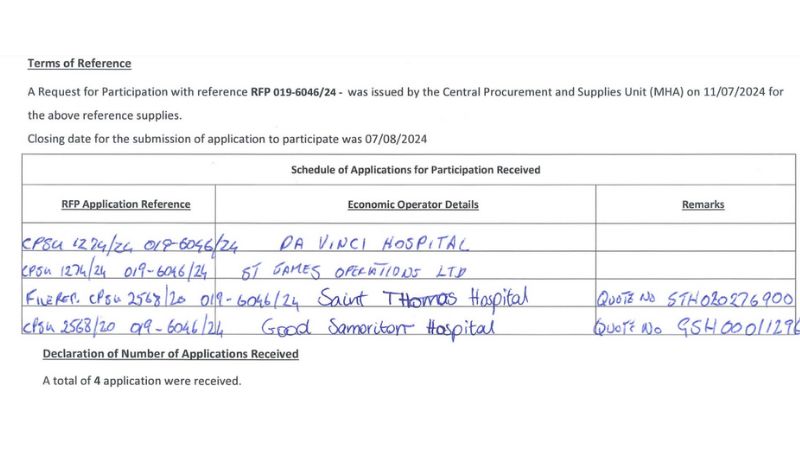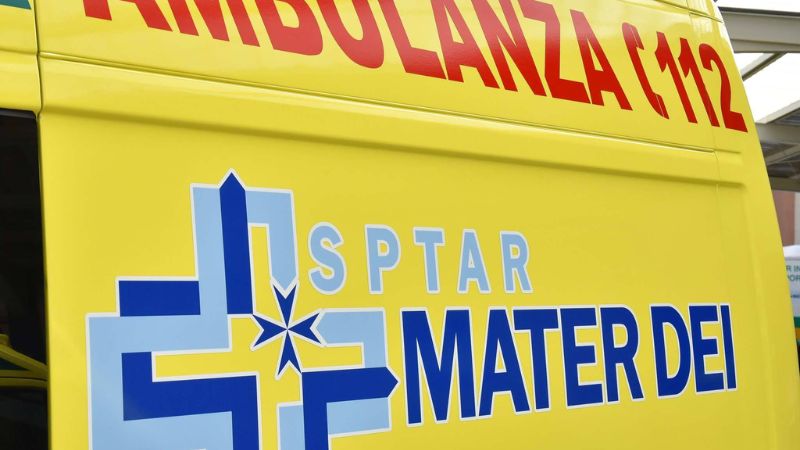All four operators of private hospitals in Malta have applied to offer emergency healthcare services to patients referred from Mater Dei, in the latest crisis management initiative by the government.
Following the closing of a Request for Proposals (RfP), which the health authorities extended three times, the government received four offers in total.
Apart from the expected offer from St James Hospital, the only private facility equipped to handle serious emergencies, the health authorities also received bids from Da Vinci Hospital in Birkirkara, St Thomas Hospital in Qormi and Good Samaritan Hospital in Buġibba, which is also administered by St Thomas.
St Thomas is owned by former Labour politician Louis Buhagiar, while St James is owned by former PN MP Josie Muscat.
These offers will now undergo a rigorous evaluation process by a specialised committee, ensuring that the best decisions are made for the public’s health and safety.
The Shift is informed that if this initiative goes through, all hospitals will be given a three-month contract on an experimental basis. The contracts can then be renewed for up to two years if the system is successful.

Bids received for the health ministry’s outsourcing of emergency services.
No specific budget has been reserved yet for the outsourcing of emergency care, although this is expected to cost the government several millions.
The same system, but on a smaller scale, was introduced by the PN administration prior to 2013, when small emergencies started to be referred to St James Hospital, situated in Zabbar at the time. However, this initiative faced challenges due to underfunding and outstanding payments, leading to its discontinuation when the Labour Party came into power.
Medical professionals who spoke to The Shift said the outsourcing of emergency services to private hospitals might work if a whole professional structure is put in place to support it.
“In 30 of 40 per cent of cases, emergency patients can be treated in a small clinic and don’t need to go to Mater Dei. If these patients are referred to the outsourcing hospitals, Mater Dei can concentrate more on the serious cases and expedite its service.”
On the other hand, the Medical Association of Malta was less enthusiastic. MAM considers the latest initiative an admission of failure after long years in which the government based its economy on the importation of cheap labour without investing in infrastructure, including healthcare.
According to healthcare professionals, waiting times at Mater Dei have reached crisis levels. It takes an average of 12 hours for patients to receive treatment.
Taxpayers are already paying private hospitals millions to alleviate the load on the state’s services. These include the outsourcing of CT scans and MRIs.
In the majority of cases, the same consultants and specialists on Mater Dei’s payroll provide the same services at private hospitals.













This situation is quite frustrating. I pay for insurance specifically to ensure access to services when needed. It would be deeply concerning to find out that individuals without insurance are receiving services through this scheme, potentially at the expense of those who have invested in insurance coverage. Such a scenario would undermine the value of paying for insurance in the first place.
I too pay for an insurance cover to be able to access services that go beyond what mater dei offers. This does not mean that my cover is meant to stop others from accessing emergency services. Health care is a right and therefore should be accessible to all no matter how rich or poor you are.
It seems there may have been a misunderstanding. While I fully agree with you that healthcare is indeed a fundamental right, that’s not the central issue we’re addressing here. The real problem lies in the lack of effective management by the government, which has led to this situation.
Outsourcing to address these challenges is not a sustainable solution, especially when it negatively impacts others. This issue is particularly concerning for those with insurance, as this approach could potentially undermine the value of having insurance in the first place. If this exercise affects those who have taken the precaution of securing insurance, it raises the question of why anyone would pay for insurance at all.
Stop the influx of cheap workers and the situation will start to improve.